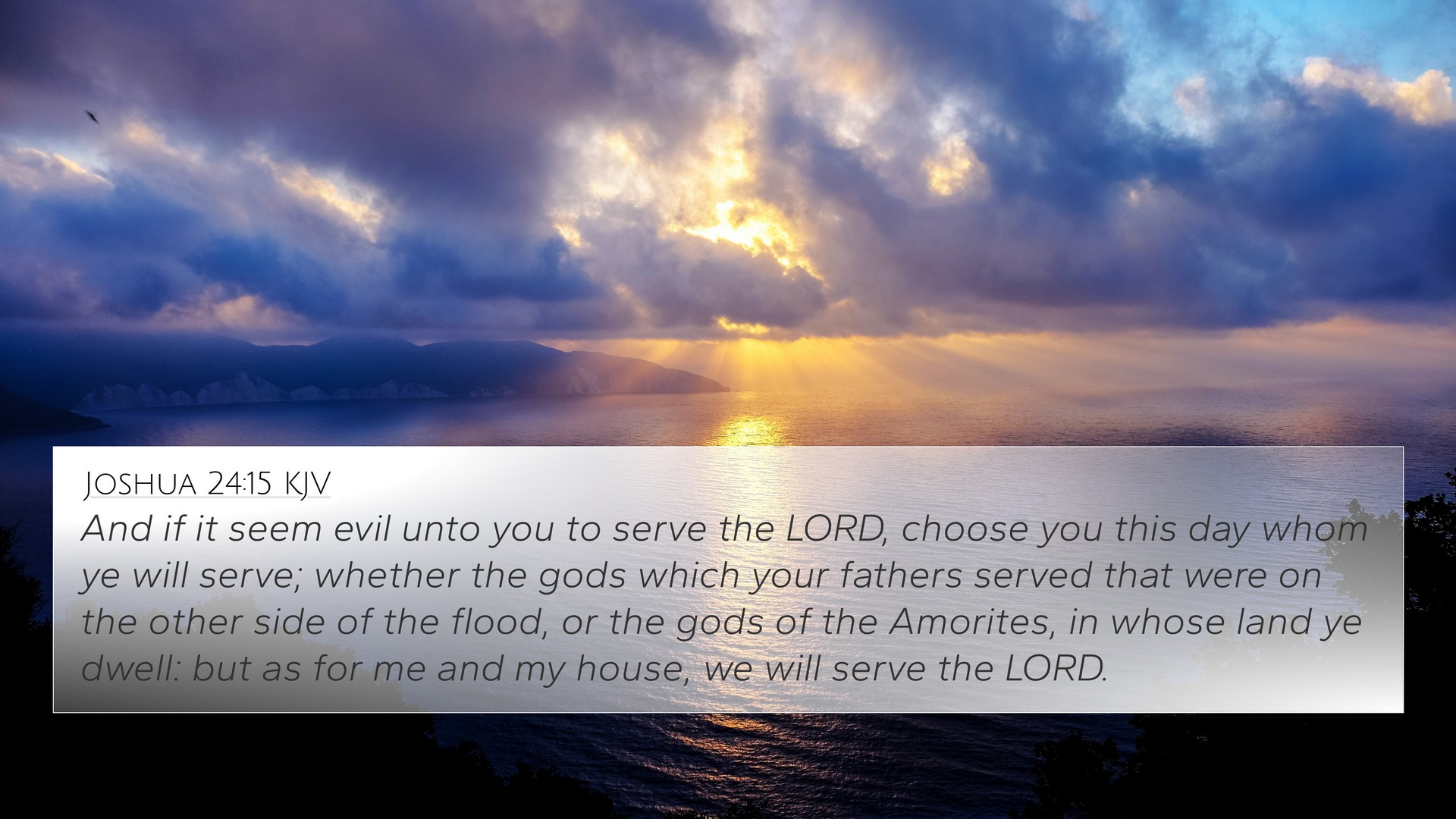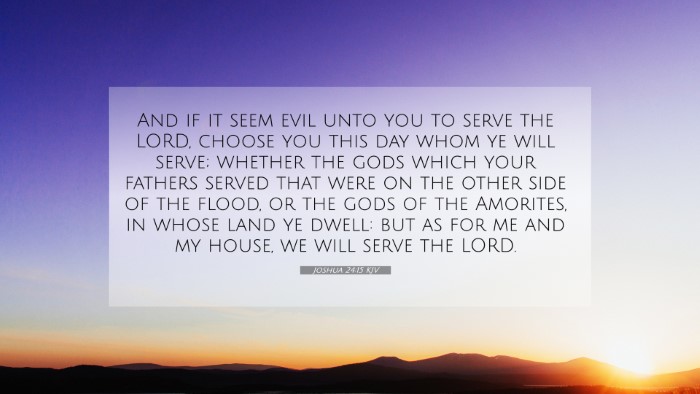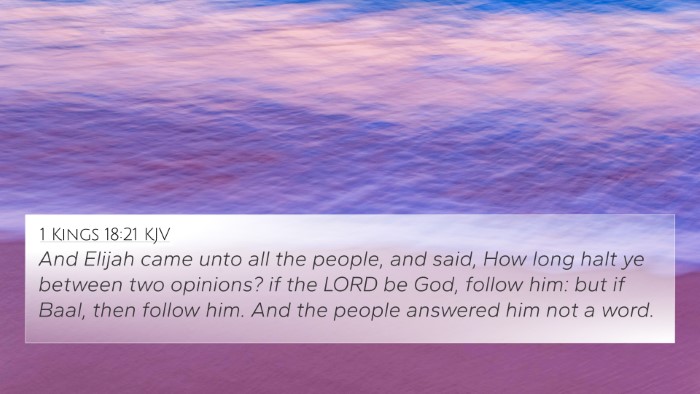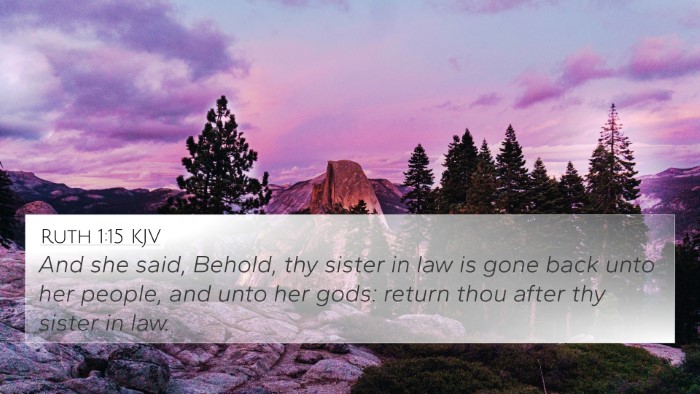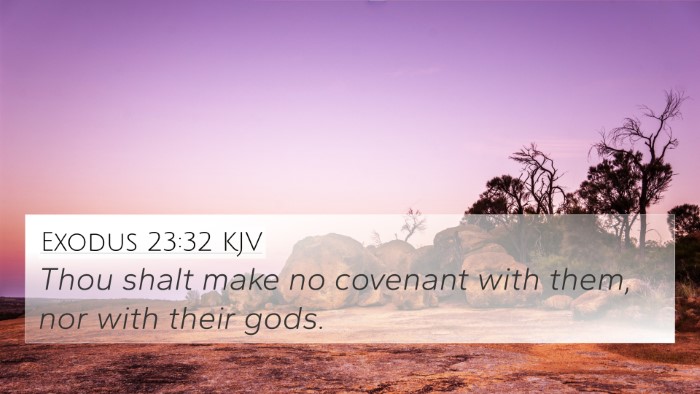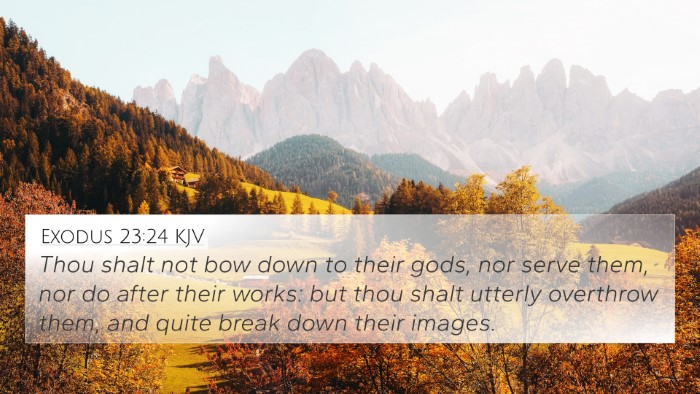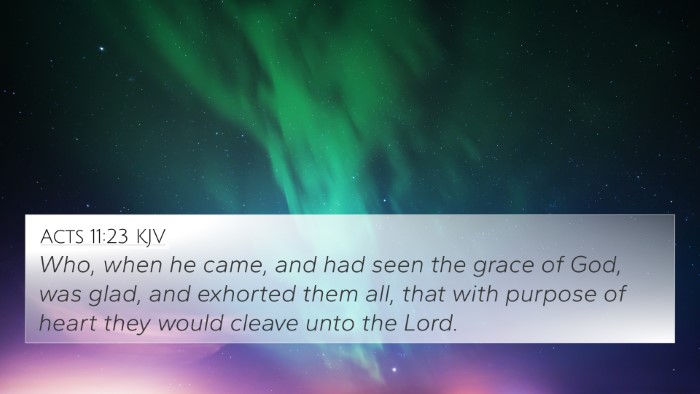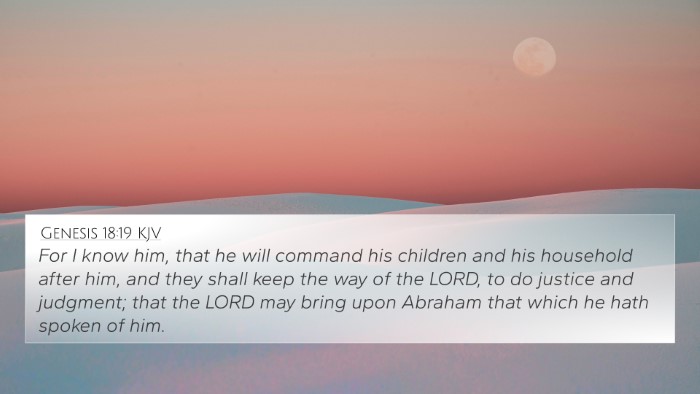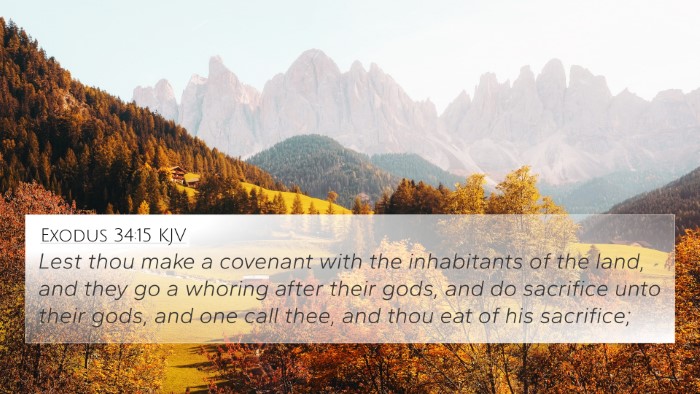Understanding Joshua 24:15
Joshua 24:15 states, "And if it seem evil unto you to serve the LORD, choose you this day whom ye will serve; whether the gods which your fathers served that were on the other side of the flood, or the gods of the Amorites, in whose land ye dwell: but as for me and my house, we will serve the LORD." This verse is a powerful declaration of faith and commitment, emphasizing the importance of choice in worship.
Context and Background
The scene occurs at the end of Joshua's life, where he gathers the Israelites to remind them of God’s faithfulness and the covenant they share. The prompt to choose whom to serve underscores the ongoing struggle between fidelity to the one true God and the allure of surrounding pagan practices.
Distinctive Themes in the Verse
- Choice: Joshua underscores the necessity of making a conscious decision regarding whom to serve.
- Commitment: The declaration from Joshua signifies a commitment not only from himself but also for his family.
- Contrast: The choice given reflects a comparison between the true God and false idols, illuminating the consequences of idolatry.
Insights from Commentators
Matthew Henry
Matthew Henry observes that Joshua presents a challenge to the people, urging them to reflect upon their spiritual state and the significance of their choices. He notes that this moment encapsulates the necessity of individual responsibility in one’s faith.
Albert Barnes
Albert Barnes highlights the personal nature of Joshua's commitment, indicating that true worship must arise from a heartfelt decision. He emphasizes that Joshua's statement is both a declaration of allegiance to God and a deliberate rejection of idol worship.
Adam Clarke
Adam Clarke points out that Joshua’s call to choose relates deeply to the historical context of Israel's struggles with idolatry. Clarke notes that Joshua's determination to serve the Lord sets a powerful example of leadership, urging others to follow his conviction.
Related Bible Cross-References
- 1 Kings 18:21: Elijah challenges the people of Israel to choose between the Lord and Baal.
- Romans 12:1-2: Paul urges believers to present their bodies as living sacrifices, a call to dedicated service.
- Matthew 6:24: Jesus asserts that one cannot serve two masters, reiterating the concept of singular devotion.
- Deuteronomy 30:19-20: The choice between life and death, blessing and curse, is similarly presented to Israel as a call to commitment.
- Luke 9:23: Jesus' call to take up one's cross emphasizes the need for discipleship and commitment.
- John 14:15: Christ states, "If you love me, keep my commandments," linking love for God with active service.
- Philippians 1:27: Paul admonishes the church to stand firm in one spirit, reflecting unity in devotion to the Lord.
- Revelation 3:15-16: The call to be neither hot nor cold serves as a stark warning of the consequences of indecision.
- Hebrews 11:24-26: Moses chose to suffer affliction with the people of God rather than enjoy the fleeting pleasures of sin, showcasing principled decision-making.
- Psalm 100:2: Serve the Lord with gladness indicates the joyful aspect of serving God willingly and wholeheartedly.
Conclusion
Joshua 24:15 serves as a timeless challenge to every believer to make a conscious and committed choice to serve the Lord. It invites reflection on one's own intentions and actions, urging an examination of priorities amid a world full of distractions and competing interests. The connections between this verse and various others across Scripture enhance our understanding of its profound implications for individual faith and collective worship.
Further Reflections
The themes of choice and commitment are prevalent throughout the Bible, reflecting God’s desire for His people to engage in a meaningful relationship with Him. This verse serves not only as a call to the Israelites but to all believers to stand firm in faith and make deliberate choices in their spiritual lives.
Tools for Deeper Understanding
Utilizing a bible concordance or a bible cross-reference guide can help you explore related themes and scriptures further, providing a comprehensive study of how various biblical texts interconnect. Engaging in cross-referencing Bible studies can illuminate the richness of scriptural dialogue and uncover deeper meanings within the text.
Engagement with the Text
As you continue to explore the Scriptures, consider the numerous bible verses that relate to each other and how they can enhance your understanding of God's word. Attempting a comparative study of Pauline epistles or investigating the identifying connections between the Old and New Testament can yield valuable insights into the continuity of God's message and the importance of individual choices in serving Him.
